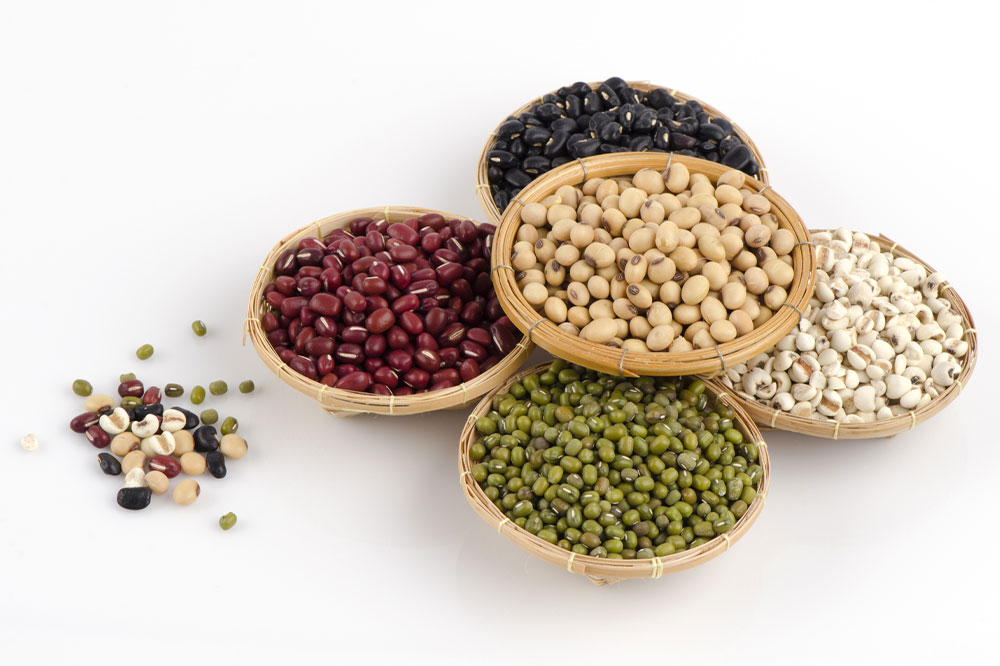Comprehensive Guide to Nutrients and Foods for Building Strong Bones
This comprehensive guide explores essential nutrients like calcium, vitamin D, magnesium, and phosphorus, highlighting rich food sources and practical dietary strategies to build and maintain strong bones. It emphasizes the importance of balanced nutrition and active lifestyles in preventing osteoporosis and ensuring skeletal health for all ages.

Comprehensive Guide to Nutrients and Foods for Building Strong Bones
The human skeletal system serves as the structural framework that supports and protects all vital organs and muscles within the body. It also facilitates movement, stores minerals, and produces blood cells. For optimal health, maintaining strong and healthy bones is crucial, especially since bone density peaks around the age of 30. After this age, bone mass gradually declines, increasing the risk of osteoporosis and fractures. Therefore, understanding the essential nutrients necessary for bone health and the best dietary sources is vital for everyone aiming to preserve their skeletal strength and overall mobility. This extensive guide explores the key nutrients, foods, and lifestyle choices that contribute to robust bones and highlight practical ways to incorporate them into your daily diet and routine.
Essential Nutrients for Bone Health
To maintain strong bones, certain nutrients are indispensable. These include calcium, vitamin D, magnesium, phosphorus, and protein. Each plays a specific role in bone formation, mineralization, and remodeling processes. Ensuring adequate intake of these nutrients can significantly impact bone density and reduce the risk of osteoporosis and other degenerative bone diseases.
Calcium: The Cornerstone of Bone Strength
Calcium is perhaps the most recognized mineral for supporting healthy bones. It makes up a significant portion of the bone mineral matrix, providing rigidity and strength. A diet deficient in calcium can lead to weakened bones, developmental problems, and increased susceptibility to fractures, especially in young adults and the elderly. Experts recommend that adults consume between 1,000 and 1,300 milligrams of calcium daily to maintain optimal bone health. Ensuring sufficient calcium intake through dietary sources is crucial for preventing osteoporosis and maintaining muscular and nerve functions.
Sources Rich in Calcium
Dairy products are among the richest sources of calcium. Milk, cheese, yogurt, and cream are highly effective in helping meet daily calcium needs. For individuals with lactose intolerance or dairy allergies, fortified plant-based alternatives such as soy, almond, cashew, and coconut milk offer excellent substitutes. Leafy greens like kale, broccoli, collard greens, turnip greens, okra, and Chinese cabbage are also nutritious sources, especially for vegetarians and vegans.
In addition to plant foods, fatty fish such as salmon, sardines, mackerel, and anchovies are valuable sources of calcium, especially when consumed with bones intact. Fortified cereals, snacks, and juices serve as convenient options to boost calcium intake. Incorporating a variety of these foods in daily meals ensures a balanced approach to maintaining strong bones and overall health.
Vitamin D: Enhancing Calcium Absorption
Vitamin D plays a critical role in facilitating calcium absorption from the gut, enabling proper mineralization of bones. Without adequate vitamin D levels, calcium cannot be effectively utilized, leading to decreased bone density and increased fracture risk. Deficiency in vitamin D is common, particularly in regions with limited sunlight exposure. To combat this, it is essential to include foods rich in vitamin D or consider supplementation under medical guidance.
Sources high in vitamin D include fatty fish like salmon, tuna, mackerel, and trout. Egg yolks, beef liver, and fish oils are also beneficial. Many countries fortify staple foods such as dairy products, orange juice, cereals, and plant-based drinks with vitamin D to help populations meet their daily requirements, typically around 600-800 IU for most adults. Regular sensible sun exposure also contributes to maintaining optimal vitamin D levels.
Magnesium, Phosphorus, and Protein: Supporting Bone Matrix
Nutrients like magnesium and phosphorus are vital for building and maintaining a healthy bone matrix. Magnesium helps convert vitamin D into its active form, supporting calcium absorption and bone mineralization. Phosphorus combines with calcium to form hydroxyapatite, the mineral component that gives bones their rigidity. Adequate protein intake is also crucial for collagen synthesis, which forms the structural framework of bones.
Nuts and seeds such as almonds, pecans, walnuts, and pistachios supply magnesium and phosphorus. Seeds like chia, flax, sesame, and pumpkin seeds provide omega-3 fatty acids that reduce inflammation, which can otherwise negatively impact bone health. Maintaining an adequate intake of these nutrients is essential for bone maintenance and repair.
Plant-Based Alternatives for Bone Nutrition
For adults following vegetarian or vegan diets, meeting daily calcium requirements is achievable through a variety of plant-based foods. Beans such as edamame, black beans, pinto beans, and kidney beans are rich in calcium, magnesium, phosphorus, and protein, contributing to overall bone health. Incorporating these in salads, soups, and main dishes can help maintain balanced nutrition.
Vegans, in particular, can focus on fortified plant-based foods like soy milk, rice milk, tofu, oats, rice, and dried fruits including apricots, prunes, figs, and raisins. Sesame seeds, chia seeds, and flaxseeds are also excellent sources of calcium and vitamin D. However, due to dietary restrictions, many vegans may need to consider dietary supplements to bridge potential nutritional gaps and ensure adequate bone nutrient intake.
Complementing diet with regular weight-bearing activities such as walking, jogging, or strength training enhances bone density. Limiting alcohol consumption and avoiding smoking are additional lifestyle factors that support healthy bones. Consistent dietary choices combined with physical activity are key to preserving bone strength and preventing degenerative conditions over time.
Maintaining a balanced diet rich in calcium, vitamin D, and other essential nutrients is critical for bone health. Incorporating a variety of foods including dairy, greens, fish, nuts, and seeds supports skeletal strength. Vegetarians and vegans can meet their nutritional needs through plant-based sources and supplementation if necessary. Active lifestyle choices like weight-bearing exercises complement nutritional strategies for optimal bone health.





